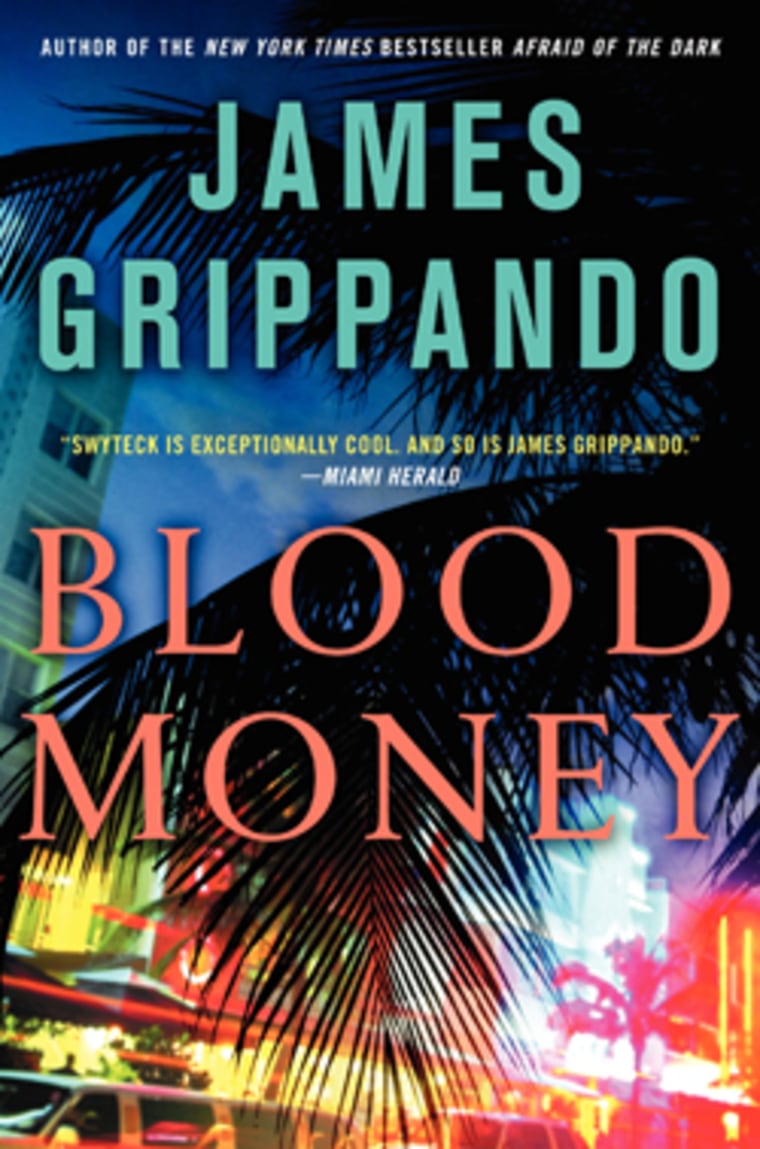Mr. Swyteck, I’m calling from Judge Matthews’ chambers.”
Jack gripped his smartphone a little tighter. The judge’s assistant was on the line. Jack was on verdict watch at his Coconut Grove law office, eating lunch with his best friend, Theo Knight.
“Is there a verdict?”
“Yes, sir. There is a verdict.”
The words hit him like a 5-iron. This is it.
Criminal Case No. 2010-48-CF, State of Florida v. Sydney Louise Bennett, had spanned twentynine court days, plus two weeks of jury selection. Fifty-nine witnesses over eighteen days for the prosecution. Another forty-seven witnesses for the defense. The jury had been drawn from a pool in the Vero Beach area, a hundred miles away from the Miami Justice Building, after three years of intense pretrial publicity. The twelve selected to serve had been sequestered since day one, the week before Memorial Day. Deliberations had started on the Fourth of July, despite the holiday. The jury had been out for ten hours. Six hours longer than the jury in the O. J. Simpson trial—the trial of the other century.
“The verdict will be announced at two fifteen p.m.,” the assistant said.
Jack thanked her and hung up. He wanted to speak to his client, but she was in the detention center across the street—lucky Thirteenth Street, as it was known—from the courtroom where Jack had last seen her, where Judge Matthews had released the jury at nine a.m. to begin day two of deliberations. Jack wondered if Sydney had been biting her nails again. It was a nervous habit she’d started before the trial, sometime after her twenty-fourth birthday, the third she’d spent behind bars without bail. Her chestnut hair was two feet longer than when they’d first met, her prison pallor a few shades whiter.
“Showtime?” asked Theo.
Jack didn’t have to say anything; the news was all over his face. He speed dialed his cocounsel, but she’d already seen the “breaking development” on Twitter. Jack had assiduously avoided the social media during trial, but like everyone else under the age of thirty, Hannah Goldsmith was addicted to all electronic forms of information overload. Fortunately, she was as facile on her feet in a courtroom as she was with her thumbs on a keypad. They agreed to meet at the courthouse.
The moment Jack’s call ended, Theo asked the proverbial $64,000 question—one that only the jurors could answer.
“Is ten hours a good sign or a bad sign?”
Jack paused. Conventional wisdom among prosecutors and many defense lawyers is that quick verdicts mean a conviction. But most homicide cases in which the state seeks the death penalty aren’t based entirely on circumstantial evidence. And there was that well-known outlier—the Simpson case. Sydney was no celebrity, but comparisons in the media between the two highprofile murder trials were relentless. “Juani Cochran” they called her lawyer, the Latino version of Johnnie Cochran, even though Jack was only half Hispanic and had been raised a complete gringo, his Cuban American mother having died in childbirth. It was intended as an insult, triggered by a broken-English interview his abuela had given on talk radio in defense of a grandson who, even in her view, was on the wrong side of the case.
“I think it’s a good sign,” Jack said.
Theo glanced up from his iPhone, where the news was streaming in real time. “Talking heads are all saying guilty.”
As if that mattered. More than six hundred press passes had been issued for media coverage, and every major broadcast network had at least one reporter at the trial. HLN and msnbc had built two-story air-conditioned structures across from the courthouse for reporters and crews. People had daily in-court coverage, splashing the case on its magazine cover in the midst of trial. Legal analysis on Breaking News Network extended from early morning through prime time. BNN’s regular nightly segments competed with network specials like “Inside the Trial of Sydney Bennett” on Dateline NBC and “Only Sydney Knows” on 48 Hours Mystery at CBS. Courtroom 3 had become another Miami tourist destination, like South Beach and the Seaquarium, with spectators coming from as far away as Japan to vie for the fifty seats available to the public.
Verbal altercations were common, at least one having escalated to an all-out fistfight that required police intervention. Critics said it was the defense who courted the media. They neglected to mention that, unlike the prosecution, Jack had avoided all interviews and had issued not a single press release. Never in his fifteen years as a lawyer had he done television ads, billboards, or anything of the sort. Sydney Bennett was definitely not someone he had gone out looking to represent.
The case had found him.
Jack glanced at the flat-screen television on the wall. The anchor at BNN studios in New York—the ringmaster of “Sydney Watch Central”—was on the air. The excitement in her eyes made the banner at the bottom of the screen superfluous: jury has reached a verdict.
Jack left his uneaten lunch on his desk, grabbed his briefcase, and hurried out to the car.
Picketers had been marching outside his law office since the start of jury deliberations, but they were too busy scrambling to their vehicles, posters tucked under their arms, to pester Jack any longer. They’d already gotten word of the BNN news flash and knew the wait was over. Theo drove, so gravel flew when they pulled out of the parking lot. The picketers followed.
“You never asked me if Sydney did it,” Jack said.
Theo’s gaze remained fixed on the road. Theo Knight was Jack’s best friend, bartender, therapist, confidant, and sometime investigator. He was also a former client, a one-time gangbanger who easily could have ended up dead on the streets of Overtown or Liberty City. Today he was Jack’s self-appointed bodyguard, having insisted on driving Jack back to his office after closing arguments—after Jack’s second anonymous death threat, one that seemed a bit too credible.
